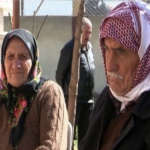By The Editorial Board: The Wall Street Journal –
Sisi wins a second term but could learn from Mubarak’s mistakes.
Egyptian President Abdel Fattah Al Sisi won his second term as President last week with an estimated 92% of the vote, which says all you need to know about the contest. The former general has blunted any serious political opposition in a country still reeling from the Arab Spring and the attempt by the Muslim Brotherhood to turn Egypt into an Islamist state.
Egyptian authorities jailed or sidelined Mr. Sisi’s political opponents, plastered the country with pro-Sisi propaganda and threatened citizens with fines if they didn’t vote. Yet only about 42% of the public seems to have voted, down from 47% in 2014. The turnout should worry Mr. Sisi because it signals a combination of apathy and cynicism that sooner or later will turn into harder political opposition.
The American left is criticizing the Trump Administration for not denouncing Mr. Sisi, and we wish Donald Trump would speak up for more political and social space in Egypt. But the critics would have more credibility if they had shown more alarm at the Muslim Brotherhood’s attempt to impose one man, one vote, once. America’s pundits descended on Cairo’s Tahrir Square to celebrate the revolution against long-ruling strongman Hosni Mubarak in 2011 but could afford to leave as the Brothers took power and tried to squash the opposition. Mr. Sisi and the military intervened and have ruled since.
Yet Mr. Sisi could learn from the mistakes of Mr. Mubarak, who ruled by telling Egyptians their only political choice was him or Islamist radicals. By crushing civil-society groups and political alternatives other than the Muslim Brotherhood, Mr. Mubarak let the Brothers seize the brief political opening after he was ousted. Mr. Sisi should use his second term to allow more moderate voices to emerge as a channel for political dissent even as he stresses economic growth and crushing an Islamist insurgency in the Sinai.
The U.S. needs a stable Egypt as an ally against Islamic radicalism, and in the long run that means letting Egyptians develop social and political alternatives to Sunni radicalism.
____________________
https://www.wsj.com/articles/egypts-92-president-1522612723?mod=djemMER
Photo: An Egyptian youth walks past a polling station in the capital Cairo’s western Giza district, March 25. PHOTO: MOHAMED EL-SHAHED/AGENCE FRANCE-PRESSE/GETTY IMAGES



